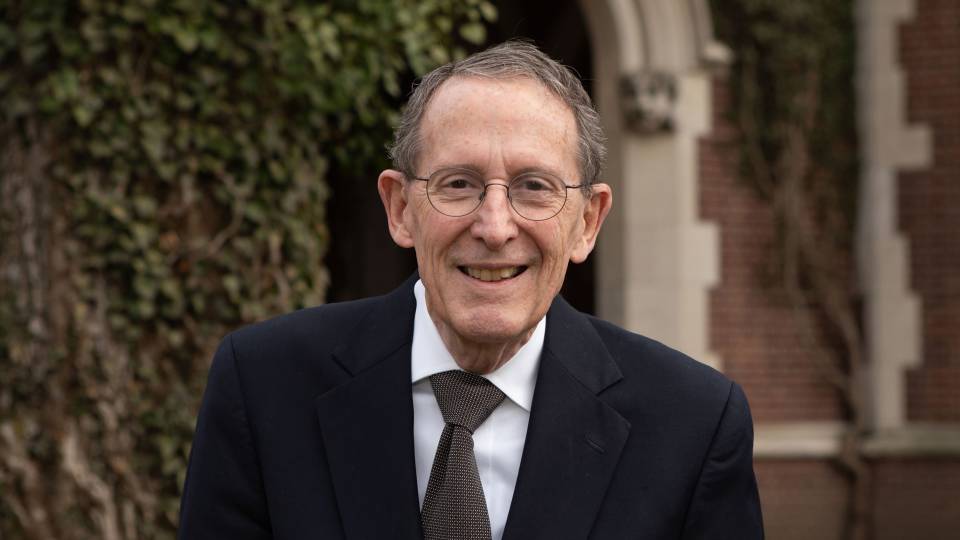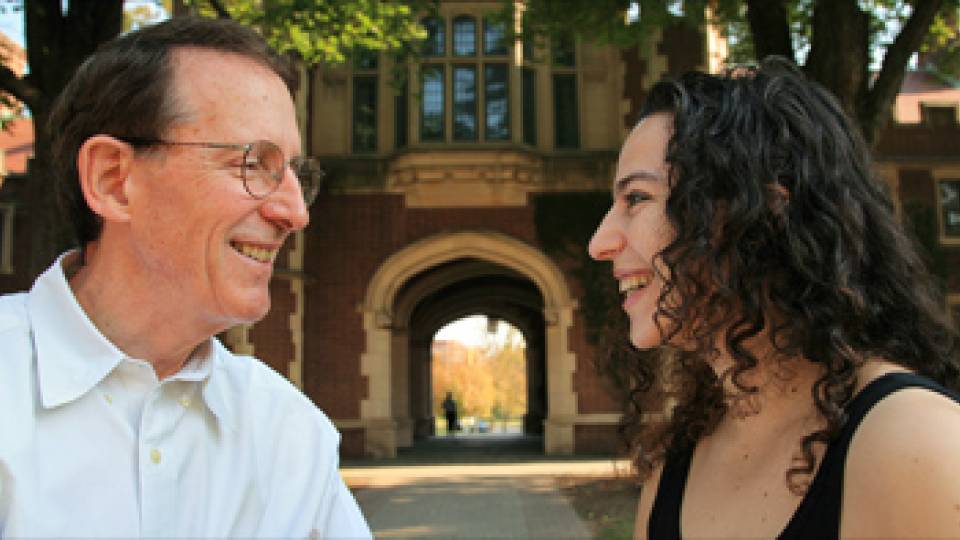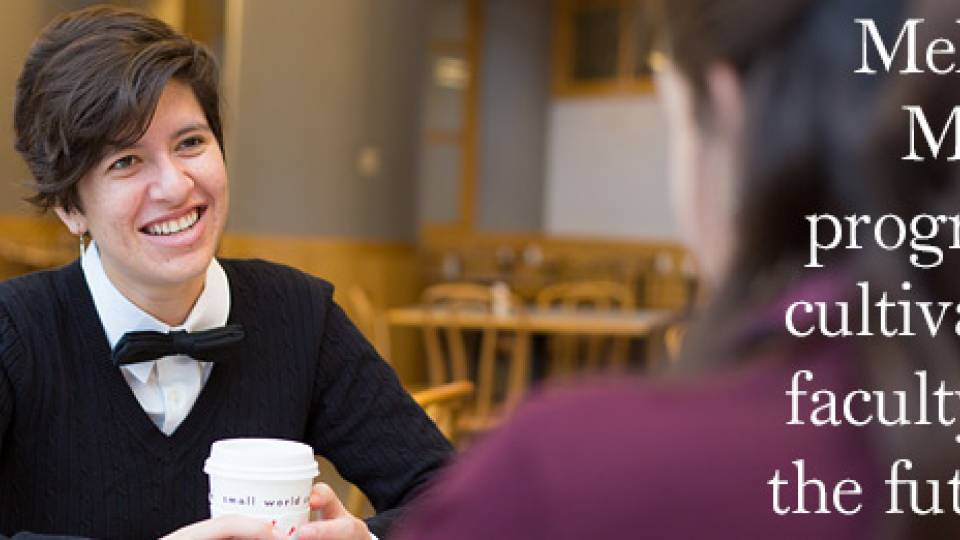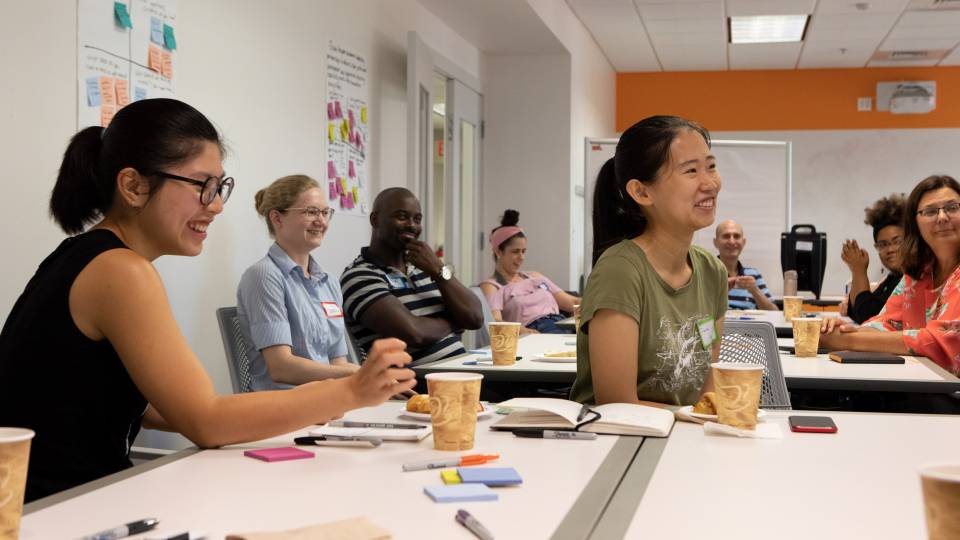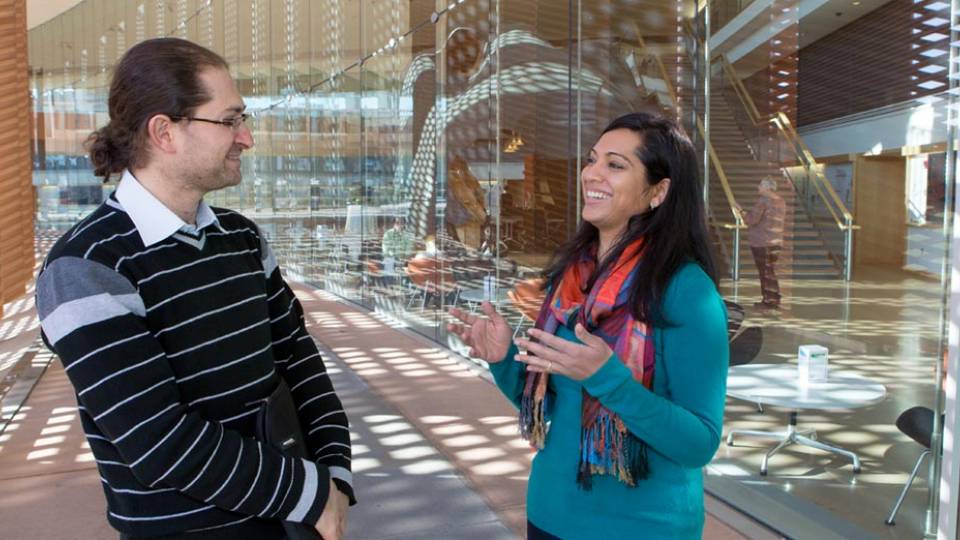Nearly 50 graduate students from around the country and beyond gathered at Princeton University for "Athena in Action: A Networking and Mentoring Workshop for Graduate Student Women in Philosophy."
The workshop included academic discussions, practical advice on building a career in philosophy and opportunities for women to build relationships with other women in the male-dominated field.
"Philosophy has a real problem with under-representation of women in the profession," said Elizabeth Harman, the Laurance S. Rockefeller Professor of Philosophy and the University Center for Human Values and one of the co-directors of the workshop. "The goal of the workshop is to improve the experiences of graduate student women in philosophy, to help them stay in philosophy and thrive in the field."
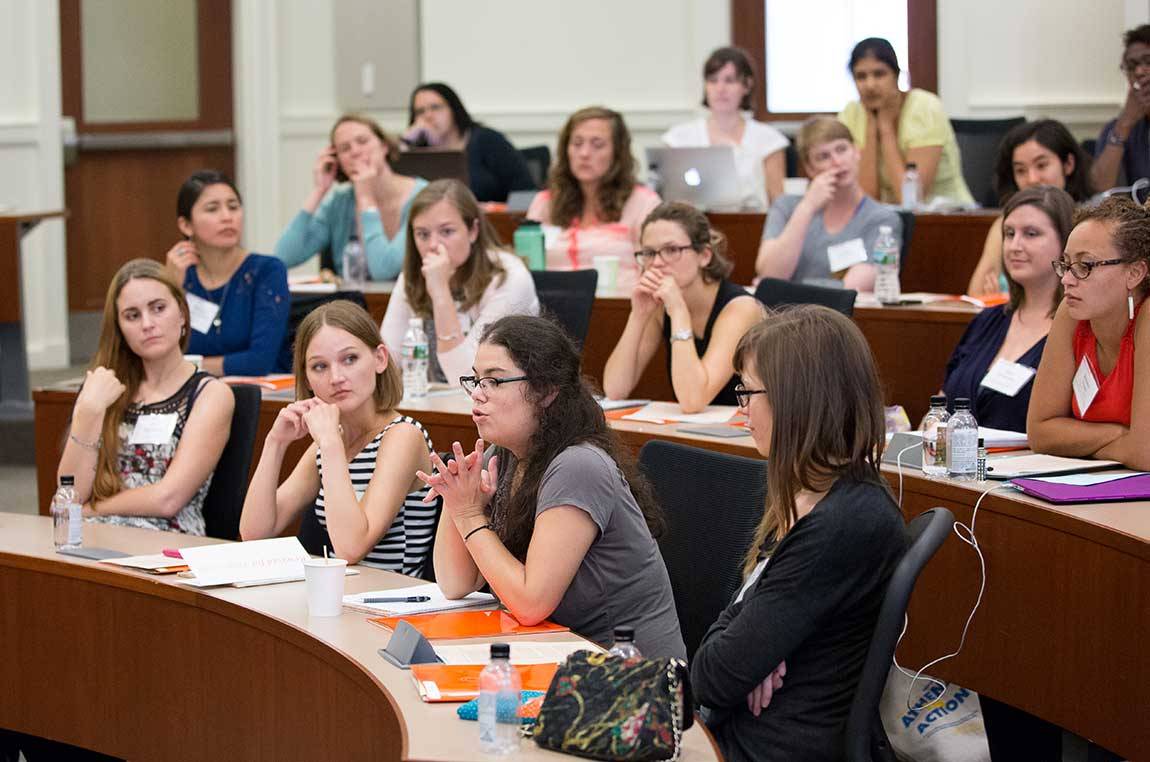
The conference, "Athena in Action: A Networking and Mentoring Workshop for Graduate Student Women in Philosophy," drew nearly 50 graduate students to Princeton from around the country and beyond. (Photos by Anita Chevres Photography)
Harman said about 80 percent of philosophy faculty members nationwide are men, as are about 70 percent of graduate students in the field.
The mid-August workshop, the second in a series of three being held over five years, included 36 graduate student participants from universities including the University of Southern California, Harvard University, the University of Texas-Austin and the University of Cambridge. About a dozen Princeton graduate students in philosophy also participated.
The graduate students were joined by a dozen female academics who served as mentors.
Mentors were professors of philosophy from a range of fields, including specialists in ancient philosophy, early modern philosophy, metaphysics and moral philosophy. Along with Harman, the other co-directors were Elisabeth Camp and Jill North of Rutgers University.
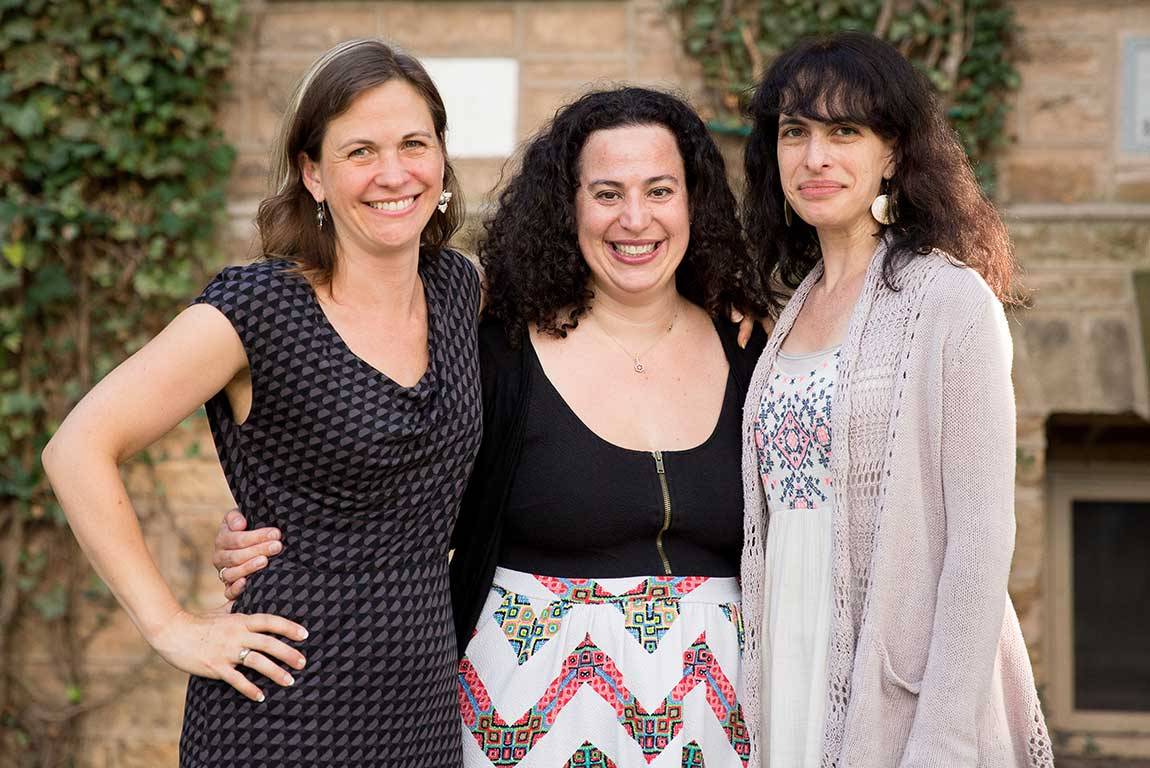
The conference was led by, from left, Elisabeth Camp of Rutgers University, Elizabeth Harman of Princeton and Jill North of Rutgers.
Workshop participants discussed papers by their colleagues including "Exploring by Believing," "Regretful Decisions and Climate Change" and "A Good Girl Is Tough and Boys Don't Cry: Normative Generics and Social Kind Terms." The papers were read in advance, and sessions began with designated commentators raising objections to the papers. The authors responded and then the audience joined the discussion. This preread structure is common in small philosophy conferences like this one.
"It's kind of a radical thing to be doing philosophy in a room full of women," Harman said. "It's so contrary to the typical experience at conferences."
The advice sessions included topics such as presenting and participating at conferences, preparing for and going on the job market, starting a tenure-track job, and balancing work and the rest of life.
At the first advice session, which covered "Getting the Most Out of Graduate School" and "Writing a Dissertation," Jennifer Nagel of the University of Toronto drew on her experience mentoring 70 Ph.D. candidates.
"Have a sense of humor and an attitude of gratitude," Nagel said.
Added Nagel, "No matter how polished you are and your presentation skills, how much networking you've done, there is no substitute for knowing what you are talking about."
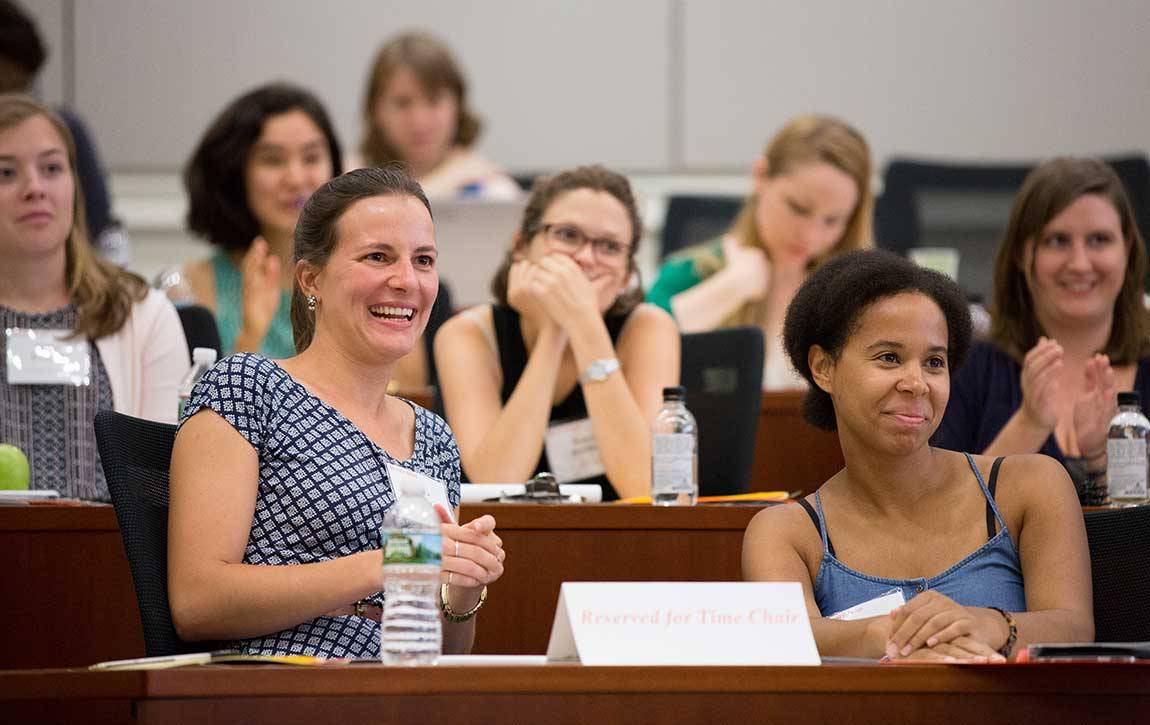
The conference included advice sessions on topics such as presenting and participating at conferences, preparing for and going on the job market, starting a tenure-track job, and balancing work and the rest of life.
She also recommended students do something outside of working on their dissertation that makes them happy, whether it's playing a recreational sport or volunteering at a homeless shelter.
"One thing very conducive to success," she said, "is maintaining your level of happiness. Successful students do something they find fun. In graduate school, it's tempting to stay on top of the latest results and findings. But if you're secretly curious about Facebook, do that too. Often our most successful graduate students are the ones who are planning the potluck. Find ways to make it fun."
Harman advised participants, most of whom were either just about to enter graduate school or in the early stages of writing their thesis, to "cultivate an outlook of being interested in every subfield of philosophy. You might identify as being interesting in ethics. You can say 'That's what I'm interested in,' but be open to getting excited by other subfields. You have a long career ahead of you."
She recommended that students attend as many philosophy talks as possible, do presentations at graduate seminars, look for opportunities to lead discussions, and above all, raise their hands. "Be an engaged participant," she said. "Develop your 'in person' philosophy skills. Talk at least three times in every session of every course you attend. If you have that commitment, you will discover you will always have a question. I have seen far too many people who didn't work on these 'in person' skills by the time they were at the stage of interviewing for jobs."
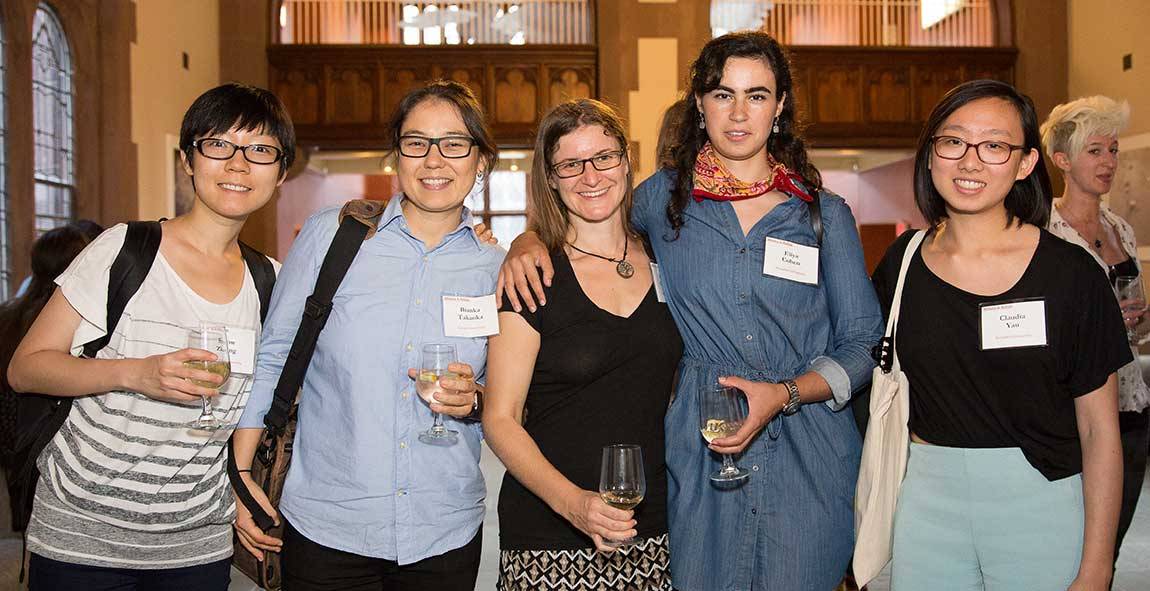
Conference participants enjoyed networking opportunities along with the academic and advice sessions.
Questions from the audience ranged from "How do you know you love your topic enough to write a dissertation on it?" to best practices for creating dissertation outlines and how to write and periodically revise a dissertation summary.
Joy Shim, a first-year Ph.D. student in philosophy at Princeton, said she found the advice sessions particularly helpful.
"Hearing so many personal stories from the mentors and mentees in regards to their journeys in academia was definitely the highlight of the workshop," Shim said. "These are the 'un-Google-able' elements that made this event so special."
Harman said the workshops should yield benefits for participants and for the field of philosophy.
"I hope most of the women who come to the workshop will be philosophy professors in the next five or 10 years, will be happy in the field and will have had a lot of success," Harman said. "I also hope they can be doing other things to make the profession good for women."
The next workshop in the series will be held in 2018 at Princeton. The workshop series is just one effort to attract and keep women in philosophy, Harman said, and others are focusing on attracting undergraduates to major in the field and recruiting undergraduate philosophy majors to pursue graduate studies in the field.
One sign of progress, Harman said, is that nine of the 11 graduate students who entered Princeton's Department of Philosophy this fall are women.
Sponsors of the workshop included the University Center for Human Values, the Council of the Humanities, the Department of Philosophy and the Office of the Provost at Princeton, as well as the Cornell University Sage School of Philosophy, the Marc Sanders Foundation and the Rutgers Department of Philosophy.
